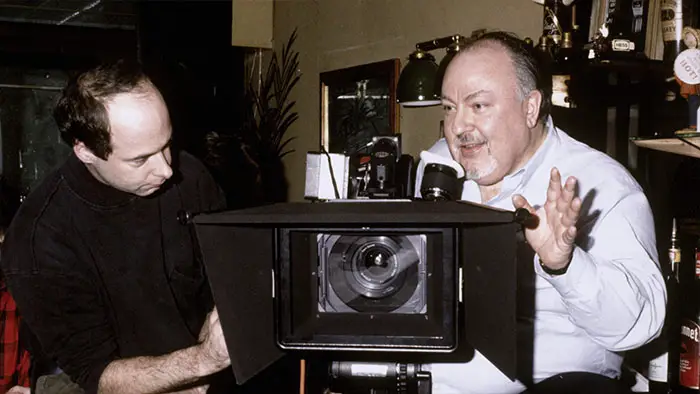
I would imagine, though, if you had a narrow plan, then you might have missed things, too.
Definitely would have. Some of the most interesting material came from interviewees, which included the President, the Vice-President, Speaker of the House, the Senate Majority Leader, two Medals of Freedom winners, and an Academy Award winner. Um, I never would have gotten some of the most compelling material if I just been focused on one issue or two issues. We spoke to each one of them for several hours in a free-ranging, freestyle conversation. They’d mentioned something, and I’d say, wait, wait, what was that? And it was the most interesting nugget that would be fascinating. I think to viewers, and for me, it was the documentarian, but going into the interview, I didn’t know that.
I know it’s contradictory, but come in with a focus, and that’s a good, efficient way to do it. But if you have a subject as broad and significant as this was, have a little time on your hands because you might find some real nuggets, some real needles in the haystack. I don’t know if that’s helpful, but that’s, that’s my take.
I like the exploration aspect of this. I’m sensing that the ultimate story you told was not precisely what you expected. We all know the historical beats, but none of the personal ones.
Absolutely surprised. I’ll give you two examples from my life. Think of an old records store or library. You can lose yourself for two or three hours with no preconceptions that you’ll find a Rolling Stones album or any particular album or any music. You’re just getting lost with a sense of discovery while wandering the aisles. It’s one of the most satisfying things you can do. In some sense, if you have a broad subject that spans time and topics like Roger, there’s value to that. There’s discovery value, and the difficult part is putting it to screen and not bore people. You hope they come along with your discovery journey and not go down some rabbit hole.

“…digitizing and transcripts, which I learned about while I was making the movie. It’s become so inexpensive.”
I have to ask, and I swear this is the last question. You have an overwhelming amount of information that you’ve gone through. What did you do with all that information that you could pass on to another documentarian presented with a similar opportunity?
Such a good question. I’ll answer it this way…with a preface. The preface is I realized halfway through I was between a rock and a hard place. The documentary subject is so broad—culture, entertainment, media, over decades and decades. I wish someone had given me a mini-series to produce, ’cause I could have gone six to ten hours. But I’m given an hour and a half to two hours. You’re going to end up cutting off fingers, toes, and arms. You just don’t have time.
The first answer to your question is knowing what the end product is going to be, and that time imposes a lot of discipline. The second thing is technology today—digitizing and transcripts, which I learned about while I was making the movie. It’s become so inexpensive. It’s almost a trifle at this point versus what filmmakers of a prior generation needed to do. The size of the teams, the cost of digitization is cheap. Running transcripts is cheap, and it’s just more efficient. To what did I learn to pass on to the next filmmaker—archive your things.
Where can we see Man in the Arena?
I’m Michael Barnes. I’m the director of a writer, director of Man in the Arena. It’s best accessed ManInTheArena.com.
